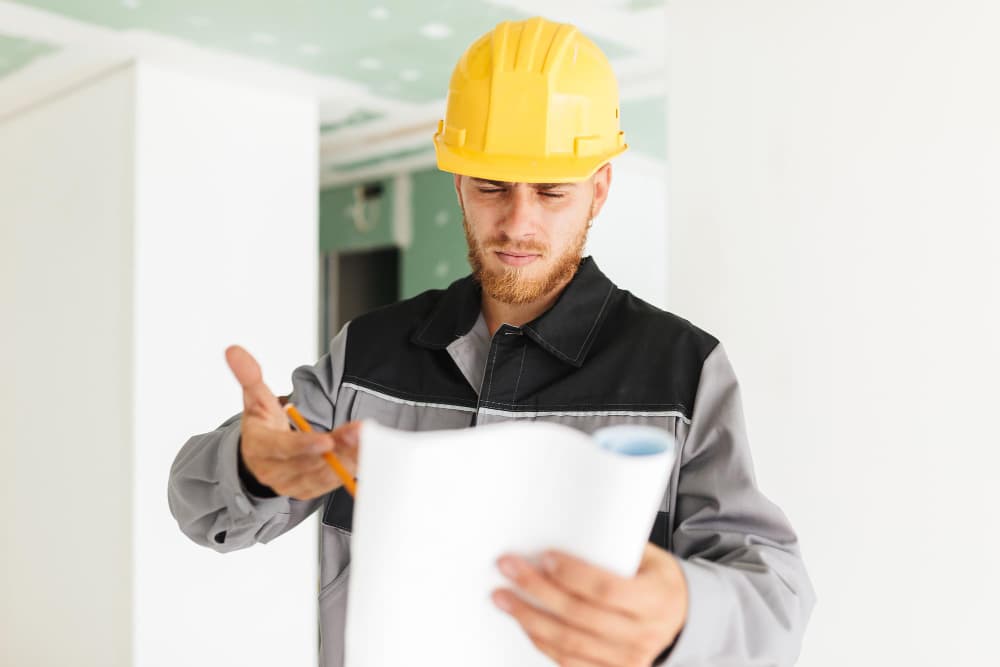So, we’re guessing you’ve got a property coming along, but you’re not sure what to make of your building inspection report.
Maybe you’ve just completed an inspection with your building and pest inspector, and they’ve given you a report. But all the terminology doesn’t make sense. Or maybe you’re not too sure what the report is really for or what you’re supposed to do next.
In this guide, we’ll explain the basics of business inspection reports. Let’s begin.
The Basics of Building Inspection Reports

A building inspection report is an essential document a qualified inspector prepares to assess a property's condition. Anyone looking to purchase property in Australia must go through this step. It’s both required and helpful, so you should make the most of this contract.
This report comprehensively analyzes any major and minor defects, potential safety hazards, and maintenance issues in your upcoming property. You should also use it to decide whether a property is worth acquiring or as leverage in your negotiations.
What a Building Inspector Does in Australia
In Australia, a building inspector is a non-negotiable when you’re property hunting. These licensed builders, surveyors, or architects examine the property thoroughly. Because inspectors operate under strict standards, they provide impartial advice on your desired property's condition.
The Australian Standard (AS 4349.1) for Building Inspections
When starting the building inspection process, the AS 4349.1 is what you should know. Also known as the Australian Standard for pre-purchase building inspections, this regulation ensures a consistent and reliable approach to assessing residential properties.
7 Key Components of Your Report

What does a complete building inspection report normally include? Here are a few key components you’ll find and what they mean:
1) Roofing
The report's roofing section mainly covers the roof's condition and highlights any areas of damage or leaks identified during the inspection. It also details the type of roofing material used and provides an estimate of its remaining lifespan.
What to do: Assess future maintenance needs and potential costs involved in repairs or replacement.
2) Exterior
This component of your building inspection report covers the building's exterior elements, including the condition of walls, windows, doors, and siding. Inspectors look for any signs of structural damage.
Things to watch out for include cracks or rot. This part will also evaluate issues related to drainage or moisture.
What to do: Look at potential risks to the building's durability and the occupants' safety.
3) Interior
Inspectors assess the interior parts of the building. That includes examining walls, ceilings, floors, and fixtures for any signs of damage, wear, and tear.
Additionally, the interior report looks at your upcoming buildingor home’s internal systems. That includes plumbing, electrical systems, and ventilation.
What to do: Look for any problems affecting plumbing, electrical, or HVAC functionality and safety.
4) Foundation
The foundation is your building's structural base. Building inspectors look for visible cracks, signs of settling, or other issues that may compromise the foundational stability of the building. This part of the report shows your property’s long-term viability and safety.
What to do: Only buy a property if the foundation report looks fine. Otherwise, you’ll want to avoid it because repairing a foundation will cost a fortune.
5) Asbestos Report
This section provides information on the presence and condition of any asbestos-containing materials (ACMs) in buildings where asbestos might be a concern.
What to do: Given the health risks associated with asbestos, you should get rid of that first. Get a quote from licensed asbestos removalists before you decide to buy the property.
6) Pests and Termites
Pest and termite inspections identify any signs of infestation in the building or house. You might look for termite damage, nests, or conditions conducive to pest infestation.
What to do: The report often suggests the next steps. The most obvious is to get pest control services. For preventive measures, you’ll want to address any issues that make the property conducive to pest growth.
7) Fire Safety
The fire safety section of the report assesses the building's compliance with Australian fire safety standards. It will look at your building’s existing smoke alarms, fire extinguishers, and fire doors and escape routes.
What to do: Follow any recommendations for improving fire safety measures. Fix any identified issues.
What Happens if I Ignore a Building Inspection Report?
We get that building inspection reports might not always be the best news. But ignoring the report’s recommendations is highly dangerous, not just for you but everyone who will reside under that roof. Here are a few things that will happen if you avoid a building inspection report’s recommendations:
-
Insurance and resale difficulties — Insurance providers often require an inspection report before issuing policies. Skipping this step may leave property owners without adequate coverage.
-
Repairs in rental properties — If a rental provider ignores a repair inspection report that says they must repair, the renter can apply to VCAT.
-
Contract termination — If you’re a seller, a buyer can terminate a contract by notice to the seller before 5:00 PM on the inspection date if the inspector's report is unsatisfactory.
-
Responsibility for fixing faults — If you don't organize a pre-purchase inspection and later find out your property is on the brink of a structural failure, you'll be responsible for fixing those faults.
-
Danger to life and limb — We hate to sound morbid, but building inspections are for people’s safety. Ignore them, and it could cause severe injury or even death. It’s not super likely, but it’s a possibility. Better be safe than sorry.
Final Thoughts
A well-documented building inspection report arms you with the knowledge needed to negotiate repairs, adjust the purchase price, or even decide against a potentially hazardous investment. In essence, this report can be helpful in your negotiation, planning, and safety and integrity.
Check out our platform if you need building inspectors who give reliable reports. We at Vetted are committed to helping make the inspection process easy for you.

